#shimodate
Explore tagged Tumblr posts
Text
Thinking about Heaven’s Design Team and that episode where Shimoda discovers the rough draft of him and Unabara keeps vouching for the “animal’s” cuteness,,,,,i love them,,,,,
#SORRY KF THIS IS CONFUSING WKAKSKSKSS#basically shimod finds the draft of a creatures design but he doesnt know what the creature is#the other designers do and try to get him to guess while giving him hints#and it turns out the draft was him wkskxnss#my post#heaven’s design team
20 notes
·
View notes
Text
you want to watch amelie doree's video essay on suisenka. you want to watch amelie doree's video essay on suisenka so bad
youtube
oouuuu....amelie doree's suisenka video essay is so good....her commentary on the idea of being saved by the narrative is so.....
59 notes
·
View notes
Text




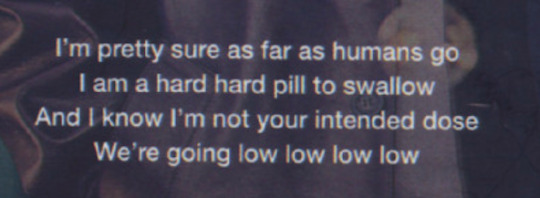

















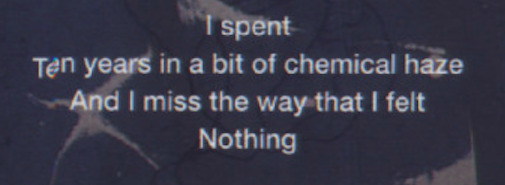



the kintsugi kid (ten years), fall out boy (2023)
muneaki shimode in "kintsugi: the art of broken pieces" (2015) // golden, fall out boy (2007) // "fall out boy: life after emo," rolling stone (2013) // gray, p. 163, pete wentz (2013) // letter to theo van gogh from vincent van gogh (1889) // sending postcards from a plane crash (wish you were here), fall out boy (2003) // notes from vincent van gogh's physician, dr. t peyron (1889) // gray, p. 150-151, pete wentz (2013) // fall out boy: this is hardcore, independent (2006) // they can't kill us until they kill us, "fall out boy forever," hanif abdurraqib (2017) // none of this rocks, "pills pills pills," joe trohman (2022) // the crown ain't worth much, "an ode to pete wentz, ending in tyler's funeral," hanif abdurraqib (2016) // none of this rocks, "hey, i just work here," joe trohman (2022) // "how fall out boy rose again," rolling stone (2013) // none of this rocks, "pills pills pills," joe trohman (2022) // yee sookyung on her translated vase series (2016) // saturday, fall out boy (2003)
#fall out boy#fob#the kintsugi kid (ten years)#*making poasts#id in the alt text#this one took a long time to assemble both because pulling together all the different parts was hard#and also because it was just...hard. to contend with.#there were some passages from where are your boys tonight i considered including but did not because i did not love that book tbh
364 notes
·
View notes
Text

“53. Clay vessel from Fukui, Mishima county, Osaka. Haji pottery. Tokyo National Muscum.
54. Clay vessel from Iwato, Nishi usuki county, Miyazaki. Height 97 in. Late Yayoi period. Tokyo National Museum.
55. Clay vessel from Atsuta, Nagoya city, Aichi. Height 12 3/16 in. Late Yayoi period. Tokyo National Museum.
56. Clay vessel with human face, from Osakata, Shimodate, Makabe county, Ibaragi. Height 27 3/16 in. Middle Yayoi period. Tokyo National Museum.”
From: “Japan before Buddhism” by Kidder, J. Edward; 1966.
8 notes
·
View notes
Text
Trip to Japan recap! (Part 3 - Himeji, Hakone and Tokyo)
Hello all,
Here’s part 1 in case you missed it:
http://utsukushiishoujomangas.tumblr.com/post/164067970528/trip-to-japan-recap-part-1
Aaand Part 2:
http://utsukushiishoujomangas.tumblr.com/post/164134921428/trip-to-japan-recap-part-2-kyoto-and-nara
Our primary method of long-distance transportation: Shinkansen (Bullet train)!
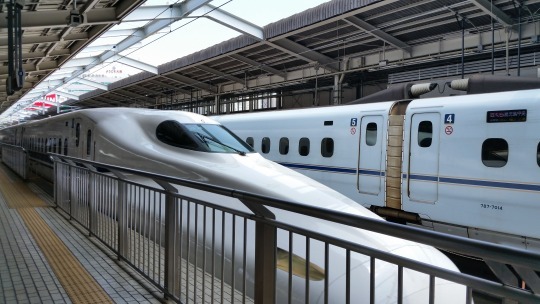
We dropped off our luggage in Osaka and left to visit Himeji Castle, widely regarded as the best intact Japanese castle (survived 400 years through WW2 and the 1995 earthquake!), its original construction dating back to 1333 (rebuilt in the 1600s).
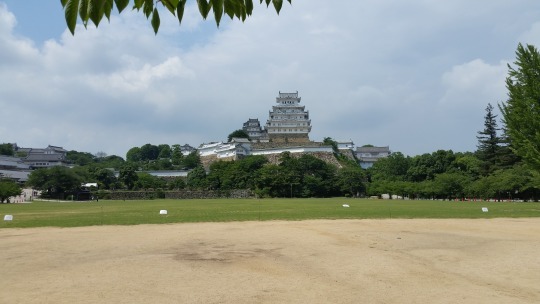
. (so that users on mobile can see the second picture)
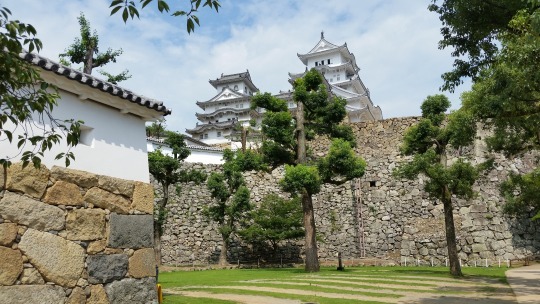
.
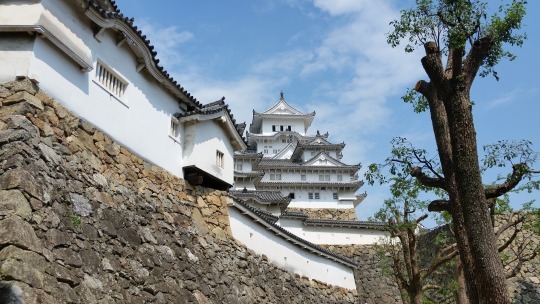
The castle itself sits on a hill, making the views from inside spectacular!
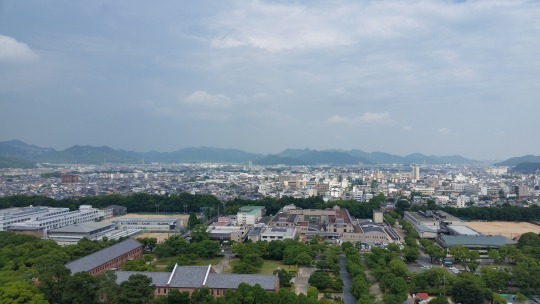
The breeze through the windows is also very refreshing~
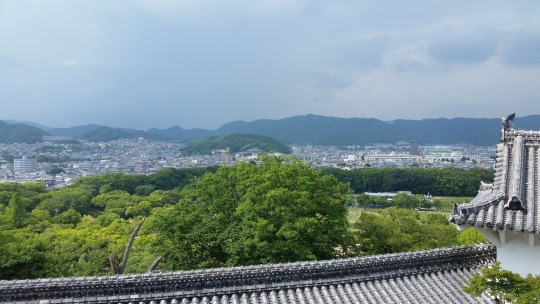
It’s a bit hard to get good pictures inside due to the sun’s glare.
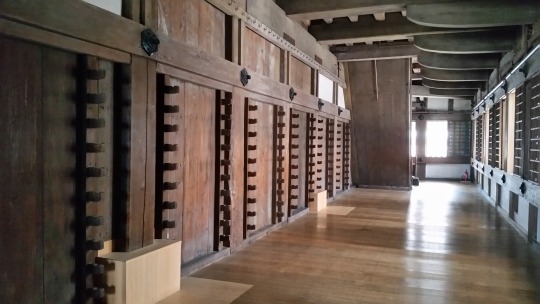
The castle itself has 7 floors, all of which are accessible through very steep wooden stairs.
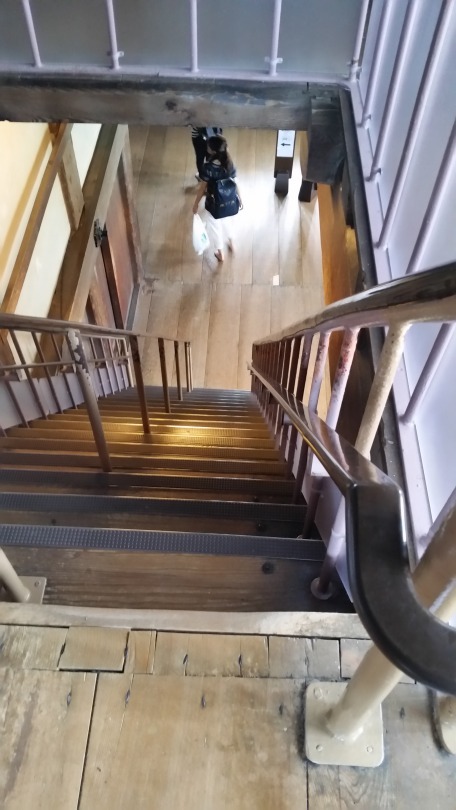
.
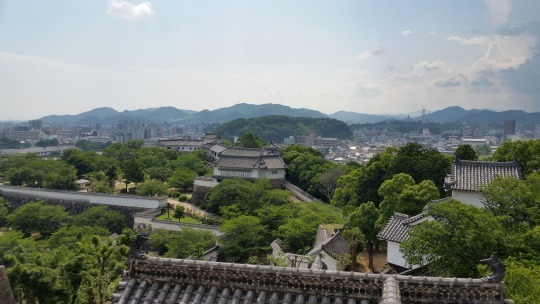
Sign at the entrance of the castle complex.
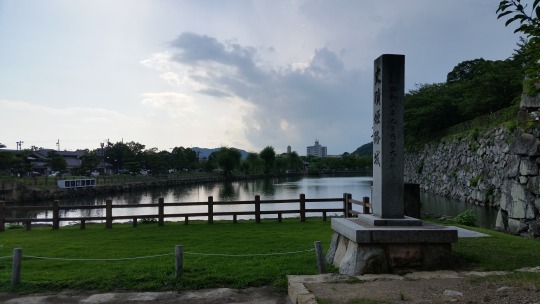
Back in Osaka!
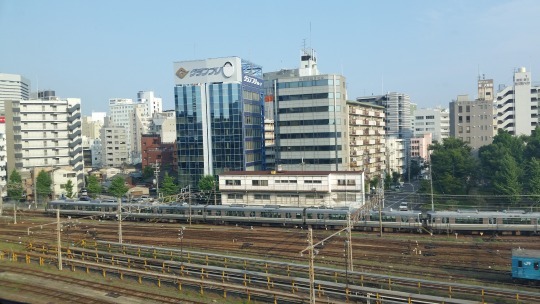
We were too tired to go out explore Osaka, so we just grabbed takoyaki at Shin-Osaka Station (Osaka being known for street food style food; eg: takoyaki, okonomiyaki, etc). So no Dotonbori/Glico Man, Denden Town, Abeno Harukas, Umeda Sky Building, Osaka Aquarium, Osaka Castle, Hep Five Ferris Wheel pictures to show here… >.<
The next day we went to Hakone, a region known for its picturesque views (with Mount Fuji in the background if weather cooperates) and onsen (hot springs) within reasonable distance from Tokyo (1h30 from Shinjuku station) making it the perfect weekend getaway for Tokyoites. The bus ride winding through the valleys isn’t really a pleasant one (tight roads, many abrupt turns) but from what I understand, we passed through the old Tokaido road linking Tokyo and Kyoto. The road was once made for foot travel, not cars so that makes sense.
The view over Lake Ashi was worth it though.
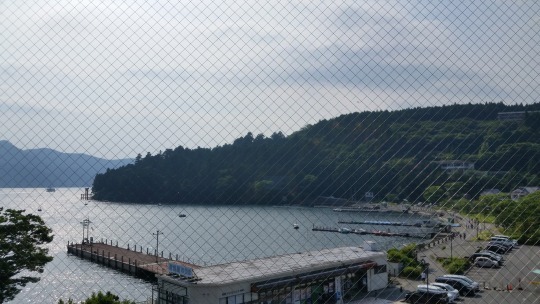
.
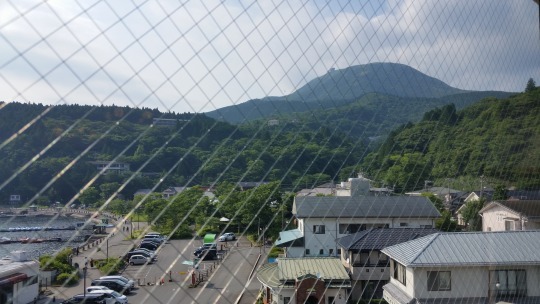
Our hotel was in Ryokan style of traditional Japanese inns.
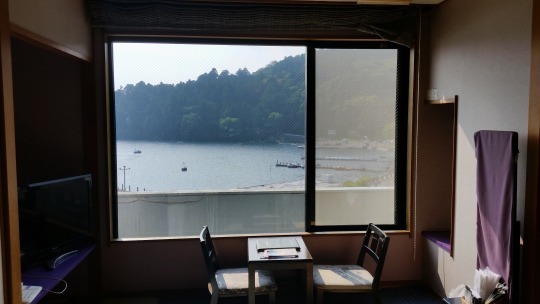
The price was indeed expensive, but it included a hearty Japanese-style dinner served in our room and a breakfast.
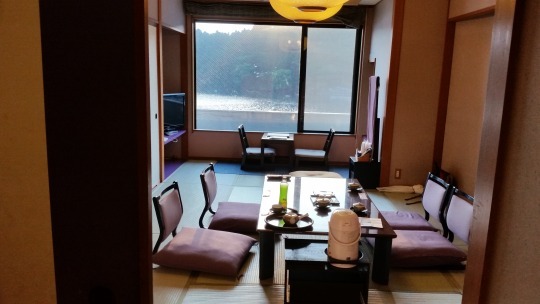
It was hard to take good pictures of the lake view owing to the sunlight glare, but it looked much brighter IRL.
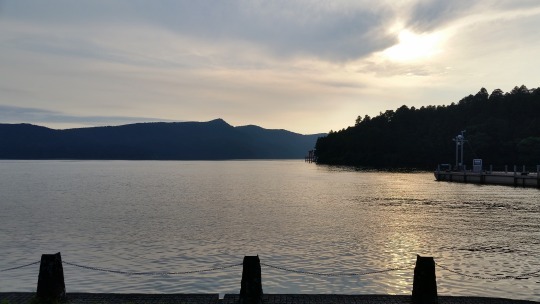
We visited Hakone Shrine next.
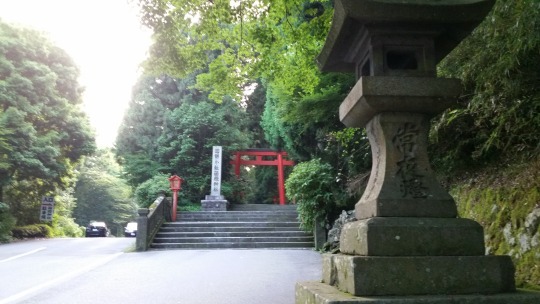
.
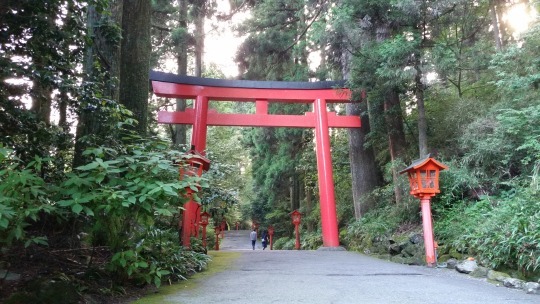
.
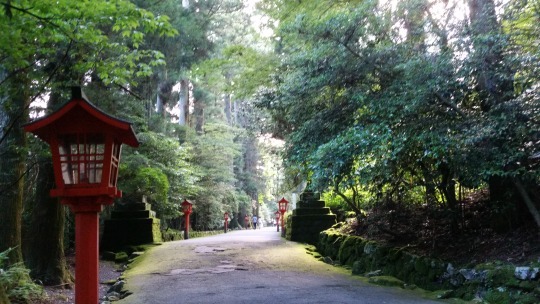
.
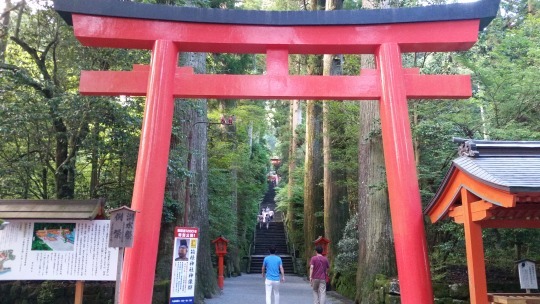
.
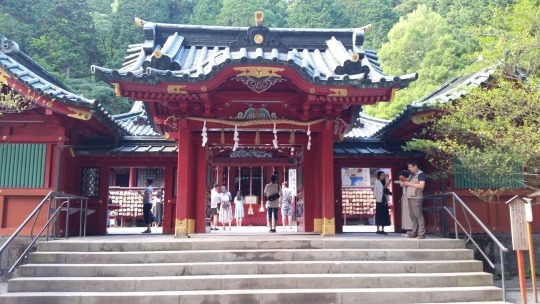
Two of Lake Ashi’s famous sights, the floating Torii gate, along with…
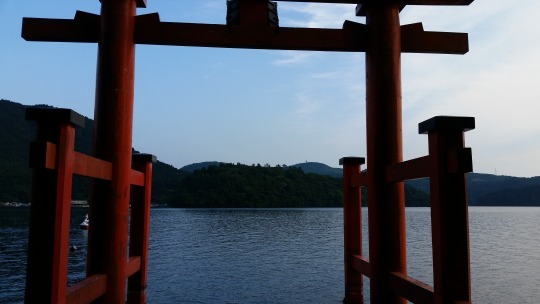
The pirate ship! xD
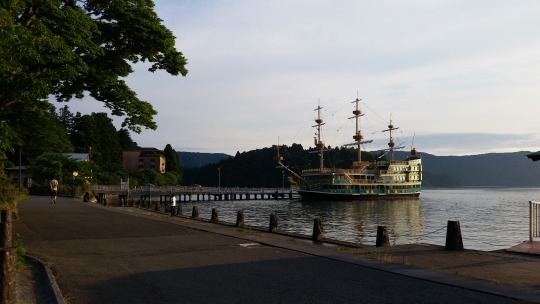
The sight just outside our hotel.
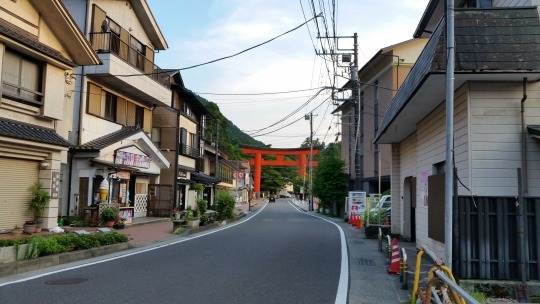
No pictures of the onsen (for obvious reasons) but I can say that anime/manga portrays it accurately (other than the usual tropes surrounding it).
The next day we took a cruise on the aforementioned pirate ship, and managed to get a glimpse of Mount Fuji (the tall faded mountain in the distance). 8D
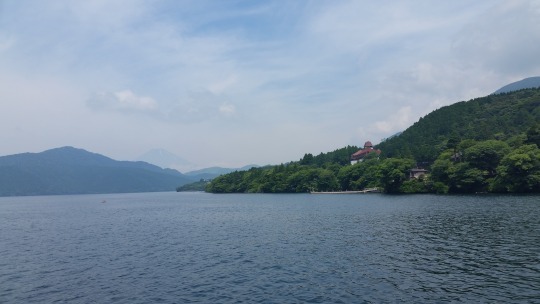
Odawara Station, where we changed to the Shinkansen.
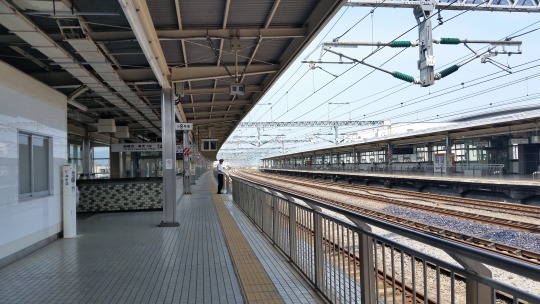
Back in Tokyo Station, we passed by the Suica store. Suica is an IC card, essentially a rechargeable card with electronic money used mainly to pay for train/metro fares (transport fares are mostly based on distance traveled in Japan, so buying a ticket every time you go out is a huge hassle), but it can also be used in many stores.
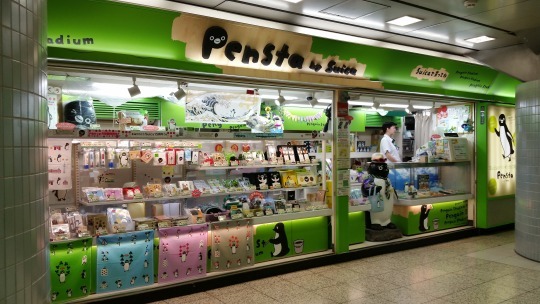
The penguin mascot is so cute. ^^
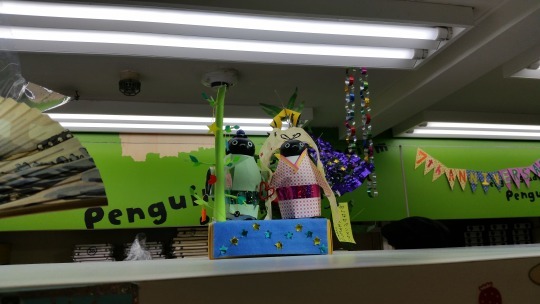
How Tokyo Station looks like from the outside.

We went out in Shibuya for supper. Here’s the famous Shibuya 109, that probably appears in every manga where the protagonists go to Shibuya for shopping. xD
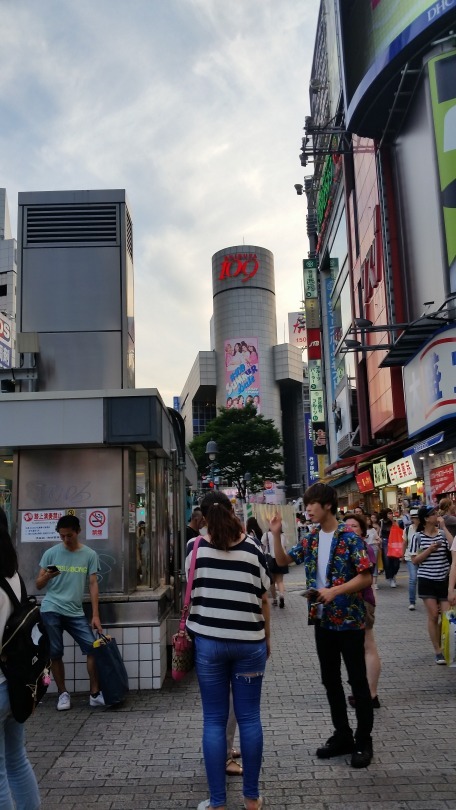
The famous Shibuya Scramble about to unfold.
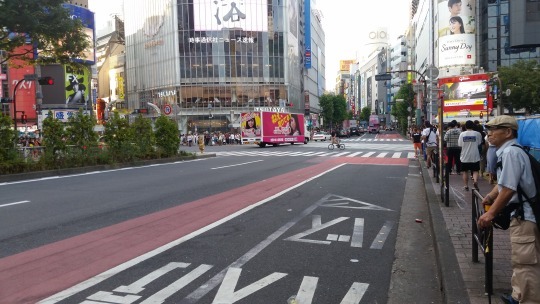
Mario-like go kart rides. Not sure if legal (foreigners driving vehicles on your streets without permits) but looks cool. :D
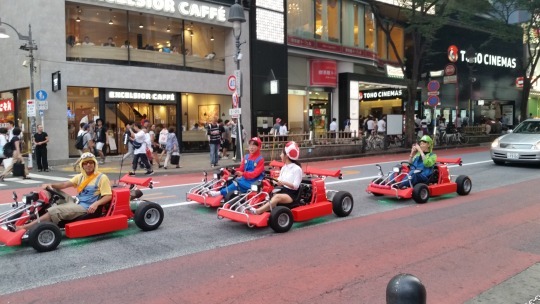
We then went to karaoke. Sooo cheap (360 yen per hour if I remember correctly; ~3.25 USD) and even the English song selection is better than those where I’m from, which is kind sad in a way. o.O
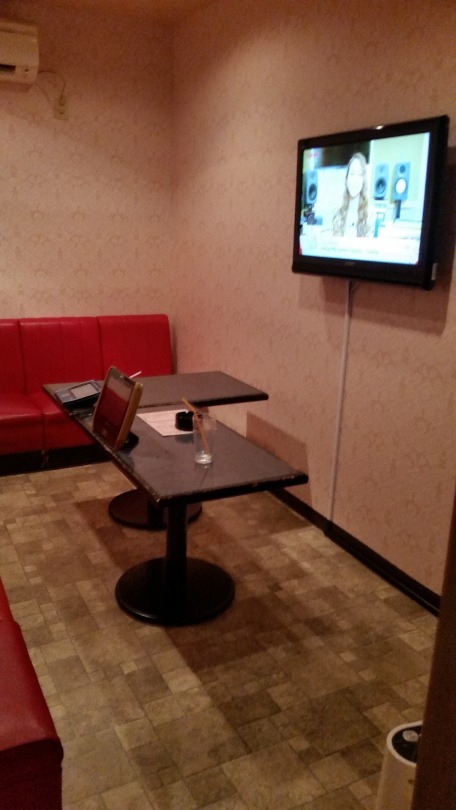
The next day we wanted to go to Mashiko, a little town known for its pottery, but got a bit confused on how to take the very local train there. Two young JR staff at Shimodate Station helped us out but after much lost time we decided to go back to Tokyo anyway. Here’s some pictures from your typical countryside Japanese train station.
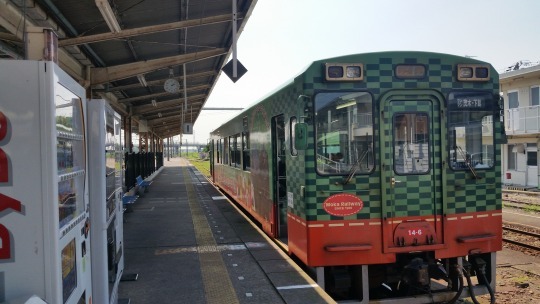
.
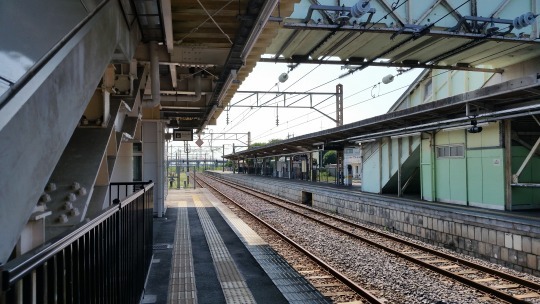
.
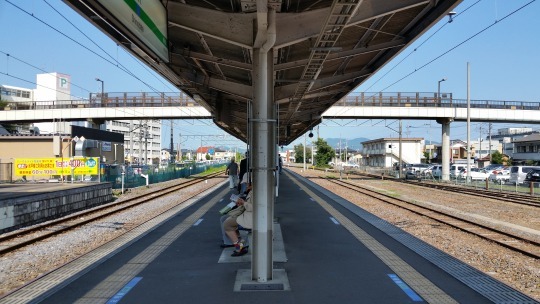
Next up is Ueno Park. This is Saigo Takamori’s statue, a tragic figure in Japanese history. A samurai from Kumamoto Prefecture in Kyushu, he helped the Imperial faction win against Shogunate forces during the Boshin War (civil war between modernist forces advocating the restoration of power from the Shogun to the Emperor and the Tokugawa Shogunate). Thereafter, disgruntled samurai in his home province rebelled because their samurai privileges were being stripped. Takamori was personally against the rebellion, but eventually agreed to lead it and died in battle against the very forces he helped establish. He is the inspiration for Hollywood’s 2003 film The Last Samurai.
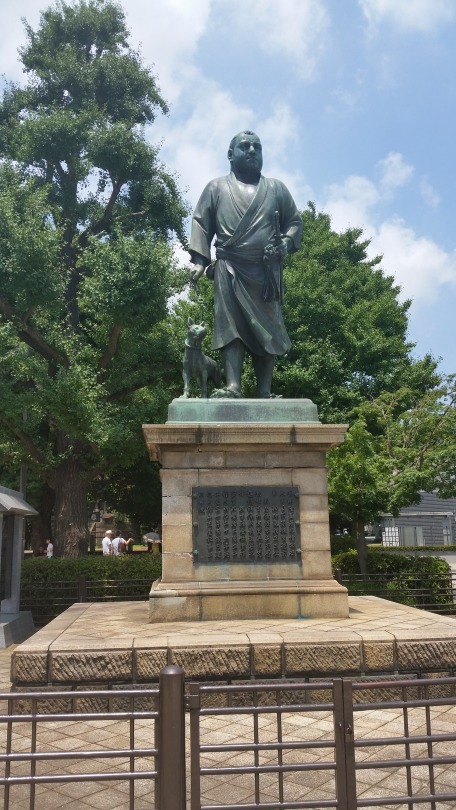
Ueno Park also has many museums, like the National Museum of Nature and Science, which has a nice whale statue in front. :D
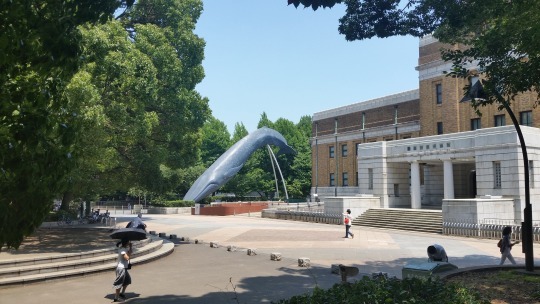
We didn’t go there though, instead opting for the Tokyo National Museum, Japan’s largest art museum. The pavilion buildings are nice-looking.
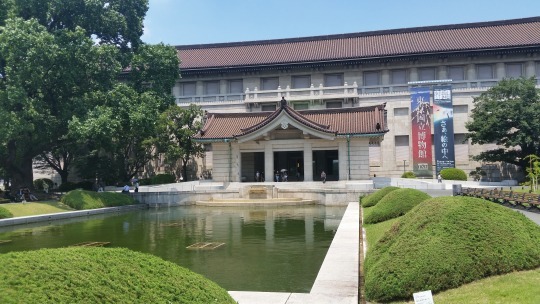
No pictures from inside as that would drag this post on even more. :P
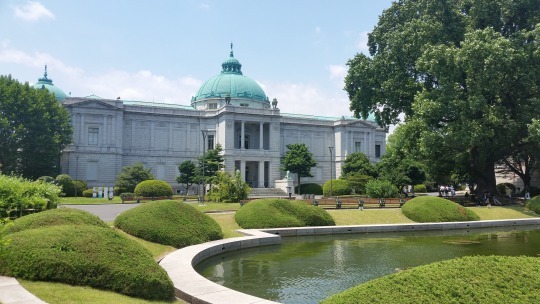
Back in Ueno Park.
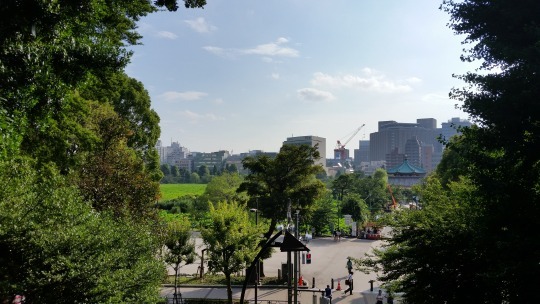
The top of Ueno Station.
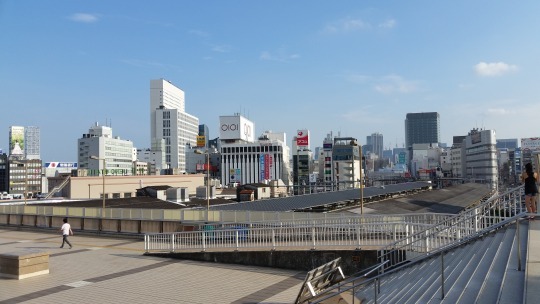
Views on the Shohei bridge, near Akihabara where we went shopping after.
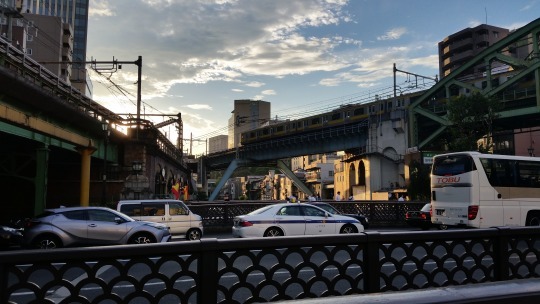
.
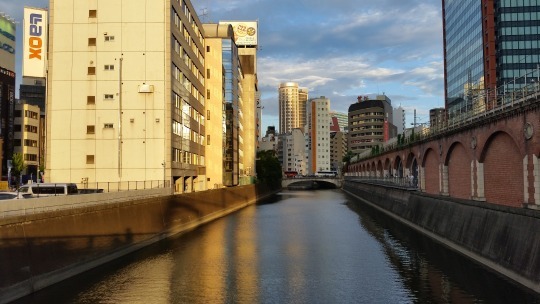
I went to Yokosuka alone the next day, a city with a strong naval heritage (hosts a major Japanese and American naval base).
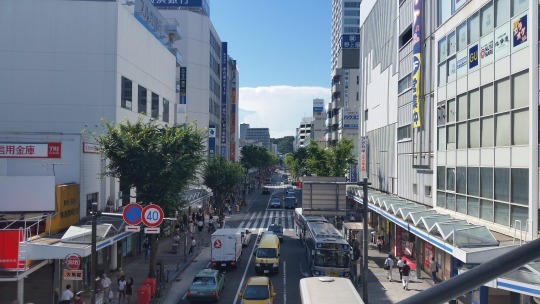
.
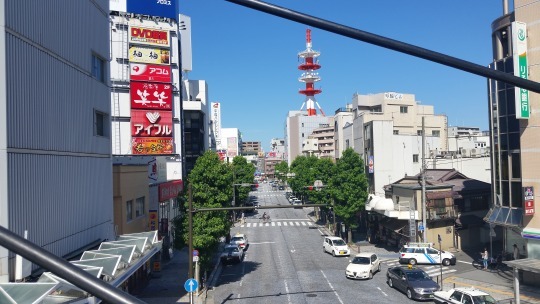
I went there for the Mikasa, a preserved pre-dreadnaught battleship from 1902. What can I say, I like naval stuff. I won’t post the other 1.1 GB pics of it I took. >:D
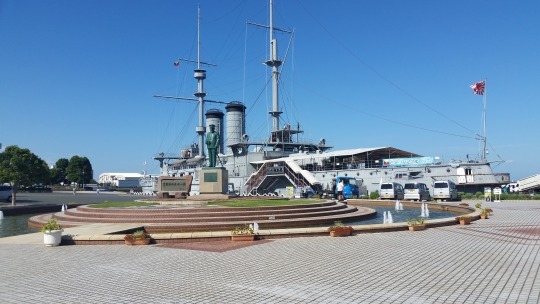
Night shopping at Akihabara again.
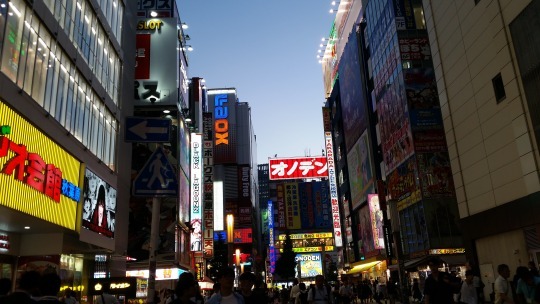
.
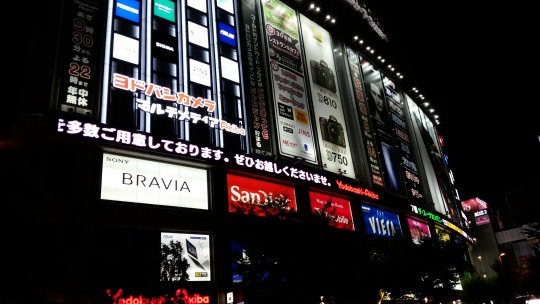
Next up is Senso-ji Temple, Tokyo’s oldest temple.
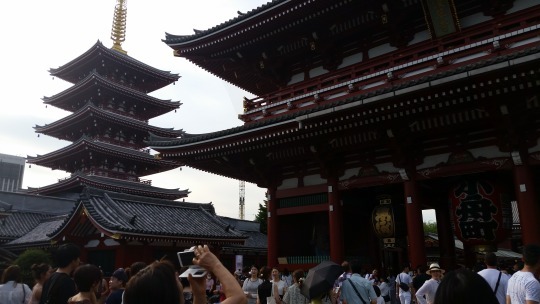
Tourist-filled, but Nakamise Shopping Street in front of it is a great spot for souvenir-shopping.

Our final day was spent mostly in and around Harajuku. First stop is Meiji-jingu, dedicated to the first modern (post 1868) Japanese emperor, Emperor Meiji.
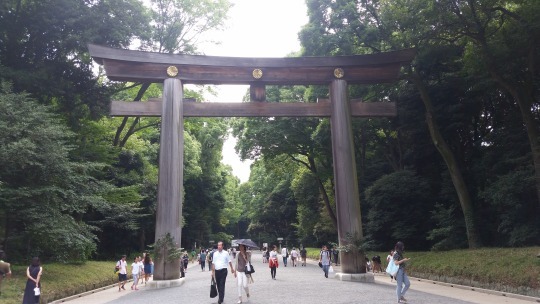
There was a traditional Japanese wedding ceremony when we were there:
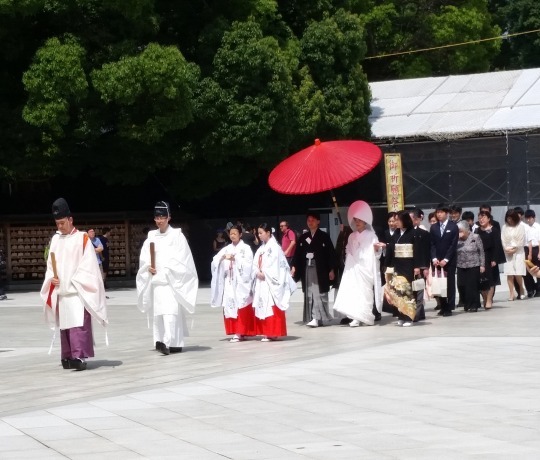
.
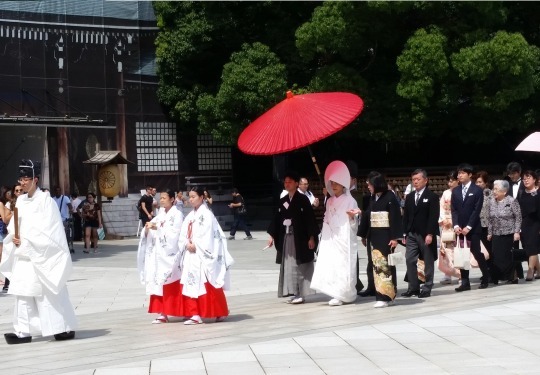
Many foreign tourists here, so you won’t be the only one if you hang your Ema wishing plaque here for all to see. ^^
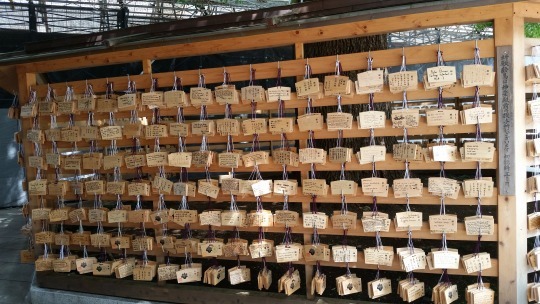
No visit to Harajuku would be complete without a stroll through Takeshita Street. Very touristy. Pretty sure it’s no longer the “central point of Tokyo teenage culture” anymore like it’s advertised in all tourist brochures.
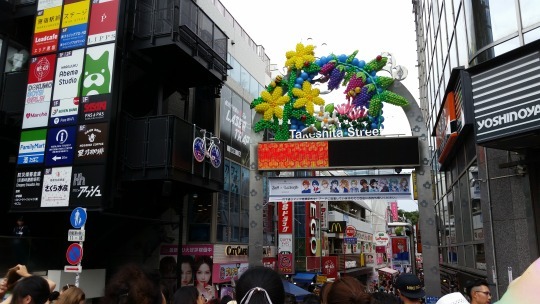
View on Shibuya Station from our airbnb apartment on the last day. Needless to say, I was very sad that day.
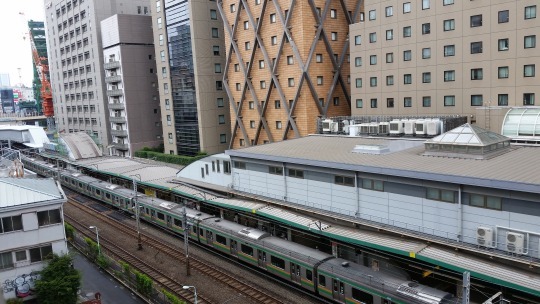
Shibuya Station.
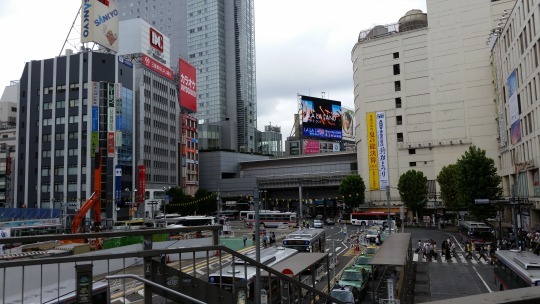
Hachiko and the Green Car in front of Shibuya Station.
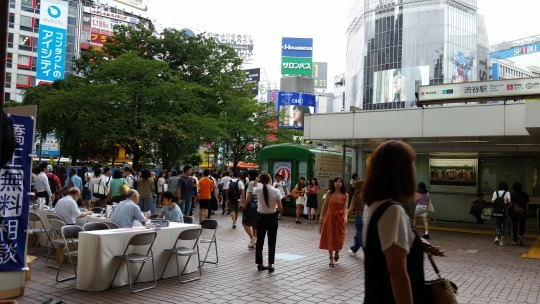
I reached the maximum photo limit (30) while drafting this post, so I’ll make a final post with miscellaneous stuff about my trip (food, drinks, non-shoujo otaku stuff). So keep watching out for that one. Hope it was entertaining ^^
#utsukushiishoujomangas#mine#japan#japan trip#himeji#himeji castle#shinkansen#bullet train#hakone#lake ashi#ashinoko#suica#saigo takamori#tokyo national museum#ueno#ueno park#shibuya#shibuya scramble#shibuya 109#shimodate#akihabara#senso-ji#sensoji#yokosuka#mikasa#mikasa memorial#meiji jingu#meiji shrine#harajuku#takeshita dori
34 notes
·
View notes
Photo

kanto railroad 1980 #関東鉄道 #下館駅 #キクハ2 #気動制御車 #元小田急 #1600形 #railways #train #dieselcar #kanto_railroad #shimodate #station ✱元小田急クハは2エンジンの元小田急キハにいつも連結。
1 note
·
View note
Video
筑西市 下館若囃太鼓 台湾公演 2003 和太鼓 wakahaya
Je replace ici ce groupe d’enfants qui jouent du Taïko avec talent et que nous suivrons si ce blog a quelque vie. Il s’agit du groupe Wakahayataiko ici en récital à Taiwan
eux même sont de Shimodate Chikusei City dans l’Ibaraki ken (150 km de Tokyo)
1 note
·
View note
Photo

日光に向かっています。 下館回りという暴挙。笑 これから水戸線に乗り換えて小山へ。 関東鉄道常総線の素晴らしさは 筆舌に尽くしがたい。 #イマソラ #雨 #寒い #出張 #鉄道 #関東鉄道 #気動車 #ディーゼルカー #鉄ヲタ #下館駅 #茨城県 #筑西市 #railway #train #japan #japan_of_insta #iphone8 (Shimodate Station)
1 note
·
View note
Text

初夏 発熱 みたいな体
soda 蜂蜜 痛いな泡が
藍色揺らしたスカートの音は
call-out 借りた傘 開いたままだ
…shimode mamoma
0 notes
Photo

Closing out #AsianHeritageMonth with a congrats to Timothy Shimod, recipient of our Outstanding Achievement in Sportsmanship award. Tommy is a #SpecialOlympics athlete who competes in 20+ sports including basketball, softball, track & field, and swimming. http://bit.ly/2HPDeYV
0 notes
Text
0 notes
Text
Favorite tweets
わたしの友人で、空き巣に入られて卒論のデータが入ったパソコンも盗まれた人がいましたね…
— shimodes (@discoSSS) January 29, 2020
from http://twitter.com/discoSSS via IFTTT
0 notes
Text
0 notes


